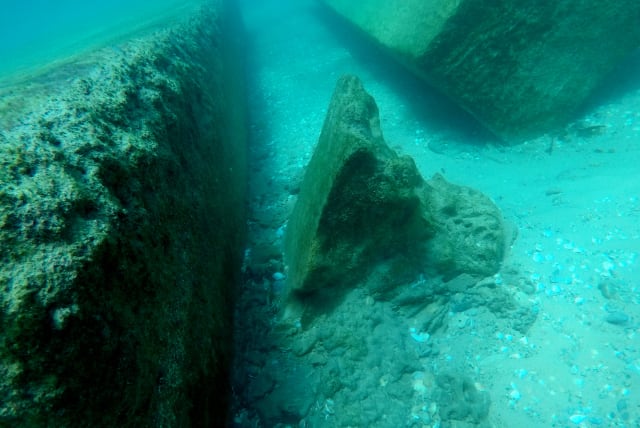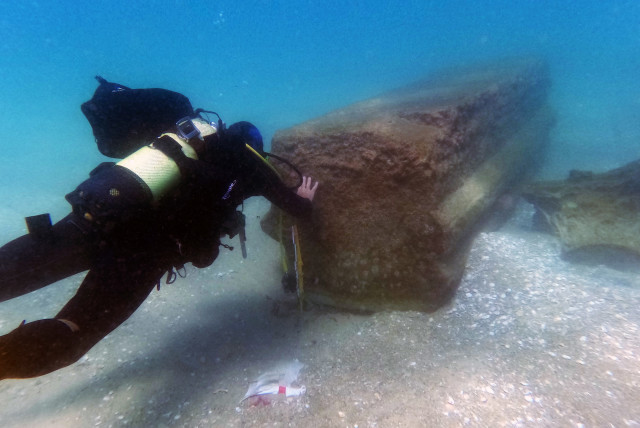Ancient Roman-era marble cargo shipwreck found by Israeli beachgoer

The cargo shipment of marble items had been known to the Israel Antiquities Authority for years, but because it was covered in sand, its exact location was unknown.
The wreck of a Roman-era shipment of marble was found by a swimmer off of Israel’s Yanai beach, in what is the first discovery of its kind in the Eastern Mediterranean, the Israel Antiquities Authority announced Monday.
The shipment of marble items had been known to the IAA for years, but because the shipwreck was covered in sand, its exact location had remained unknown until recent stormy weather helped to expose it. The find was spotted by a local swimmer, Gideon Harris, who reported it to the Antiquities Authority.
The marble cargo included Corinthian columns decorated with capitals. It is theorized that these valuable marble columns would have been used for an important construction project, such as a temple or theater.
These items were very valuable and the marble aesthetic was highly sought-after in the ancient world. For example, in Caesarea during Roman times, buildings were made of local stone but covered with stucco to make it look like marble, as noted by IAA Maritime Archaeology Unit director Kobi Shavit.
What was in the cargo shipment?
The cargo itself likely originated from somewhere in the Aegean area, modern-day Turkey or Greece. It is unknown where it was headed, but its likely destination was a southern port city such as Gaza, Ashkelon or even Alexandria in Egypt.
On its way, however, the ship likely got caught up in a storm in shallow waters and tried to drop anchor to keep from drifting away, but this instead resulted in a shipwreck.
This would have been a large ship, too. Judging by the size of the items, it would have been a vessel capable of carrying at least 200 tons.
The Antiquities Authority highlighted the importance of local civilians being vigilant for potential archaeological discoveries. Israel has been home to numerous civilizations for thousands of years, and is a hotbed of archaeological discovery.
The Antiquities Authority has jurisdiction over all excavations, and people who stumble upon archaeological finds are required to report them so they can be properly studied and conserved. IAA Director-GeneralIAA Director-General Eli Escusido praised Harris for his discovery. “Gideon’s report illustrated how essential it is for citizens to be vigilant for antiquities and how important it is for these discoveries to be reported to the Antiquities Authority,” Escusido said. “This is invaluable information for building the Land of Israel’s story.”
Jerusalem Post Store
`; document.getElementById("linkPremium").innerHTML = cont; var divWithLink = document.getElementById("premium-link"); if (divWithLink !== null && divWithLink !== 'undefined') { divWithLink.style.border = "solid 1px #cb0f3e"; divWithLink.style.textAlign = "center"; divWithLink.style.marginBottom = "15px"; divWithLink.style.marginTop = "15px"; divWithLink.style.width = "100%"; divWithLink.style.backgroundColor = "#122952"; divWithLink.style.color = "#ffffff"; divWithLink.style.lineHeight = "1.5"; } } (function (v, i) { });

